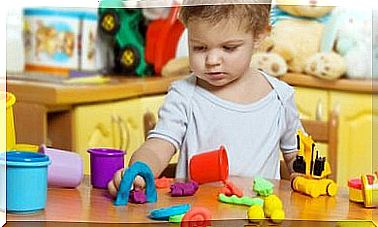Four Misconceptions Of Young People

Sometimes, as parents, we do not know how to interpret our teens’ behavior. This is quite normal as we are facing a new kind of behavior we have not seen before. This behavior can cause us to have misconceptions about young people, as well as how they think or feel.
When we see how our teens behave, we should not draw hasty conclusions. There is a danger that we will fall for “interpretation bias”. That is, we interpret things according to our needs and way of thinking.
Misconceptions of young people
In the face of various behaviors from our teens, we may begin to have misconceptions or thoughts about certain aspects of youth. Let’s take a look at some examples.

Assessment of the role as a parent based on the young people’s behavior
When we begin to see that our teens spend a lot of time with their friends, we may begin to think that they would rather be with them than us. We may also think that our opinions do not count because we are no longer important to them or that we have failed them in some way. We may begin to wonder if we have made them behave this way. However, nothing can be further from the truth.
We need to write off this kind of conclusions from our thoughts, as our children’s behavior is not caused by us, the parents. It is important that we realize that children in adolescence have a need to feel accepted by their peers. It is quite natural and they also have a desire to relate to them.
During this stage, the so-called “differentiation process” takes place. This means that the teenagers will transfer their affections to a group that is a separate entity from their family. They will create bonds with people their own age and it will help them shape their own personality and identity.
Even if this happens, it does not mean that your child does not want to be with his family. It simply means that he or she has a need to feel independent of the family core. This distance is necessary and normal for young people’s own development, although it is difficult for us, as parents, to accept it.
Believing that fewer signs of affection means our children no longer love us
Just because our teens do not love us outwardly as they once did, does not mean they do not love us. This behavior is quite normal at this stage of their development, as children also seek emotional independence from their parents.
We therefore need to stop thinking back to how loving they used to be and that they are not anymore now. You need to stop thinking; ” My child does not love me as much now” or “My child used to hug and kiss me before, and it does not feel like it now. My child must be embarrassed, we have lost his / her love. ” If you respect your child, you will quickly notice how this love will reappear, albeit in different ways.
Believe they are not able to respect and follow rules and that they are just defying you
In adolescence , children seek equality in their relationships with adults. When parents or other adults argue from an authoritarian point of view, then they tend not to accept these arguments. They feel they should be involved in setting these rules and boundaries.
That does not mean they are trying to defy or challenge their parents. They simply feel a need to express their opinion and oppose their parents’ decisions when they feel something is wrong. When faced with this situation, it is normal for parents to feel frustrated. However, this should not prevent us from establishing logical and appropriate boundaries for our children.
Although parents represent authority, we are also the safety of young people. In the face of their denials and contradictions, we should not think that the problem is with us. Instead, it’s about our teens’ independence.

Misconceptions that young people are not ready for the world
It is quite normal for parents to worry about the safety of their children. There are no parents who want something bad to happen to their children. However, it is during adolescence that we worry most because they go out more and experience more, and they may face certain dangers and risks.
Even then, we as parents need to trust them. If we have transferred good values to them, then they will know how to make the right decisions when faced with new situations. More than anything else, it is essential that we talk to them about the dangers they may encounter, as well as how to deal with them so that they can avoid making risky or dangerous decisions.
According to misconceptions of young people…
As you have seen, all these misconceptions of young people are not entirely accurate. Knowing this can help us as parents deal with it. It is important that our young children feel that we understand and respect them. That way, communication with them will be much easier.
Do not forget that they are right in the middle of developing their personality and searching for their own identity. This is why we, as parents, need to help them deal with all the emotions they are feeling. These are emotions they do not always know how to deal with.









